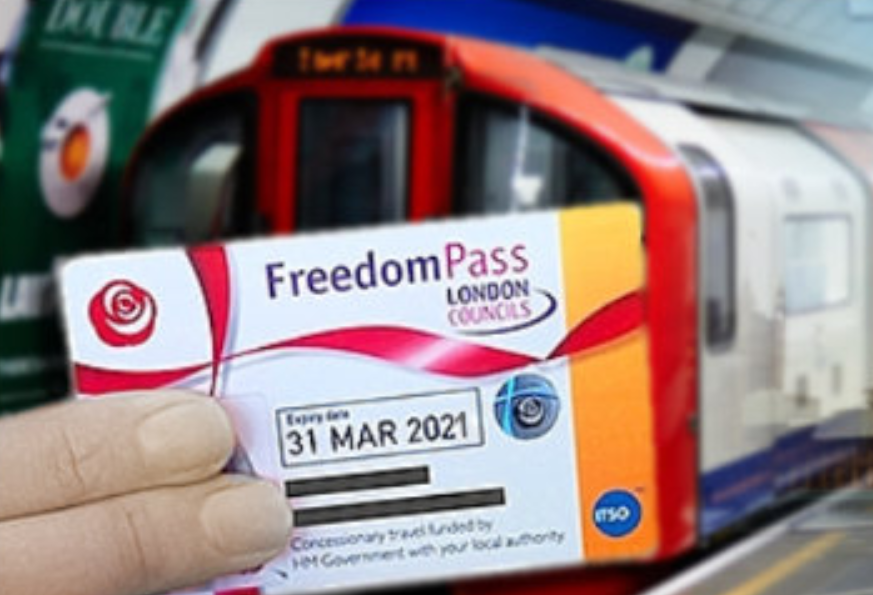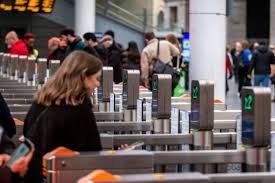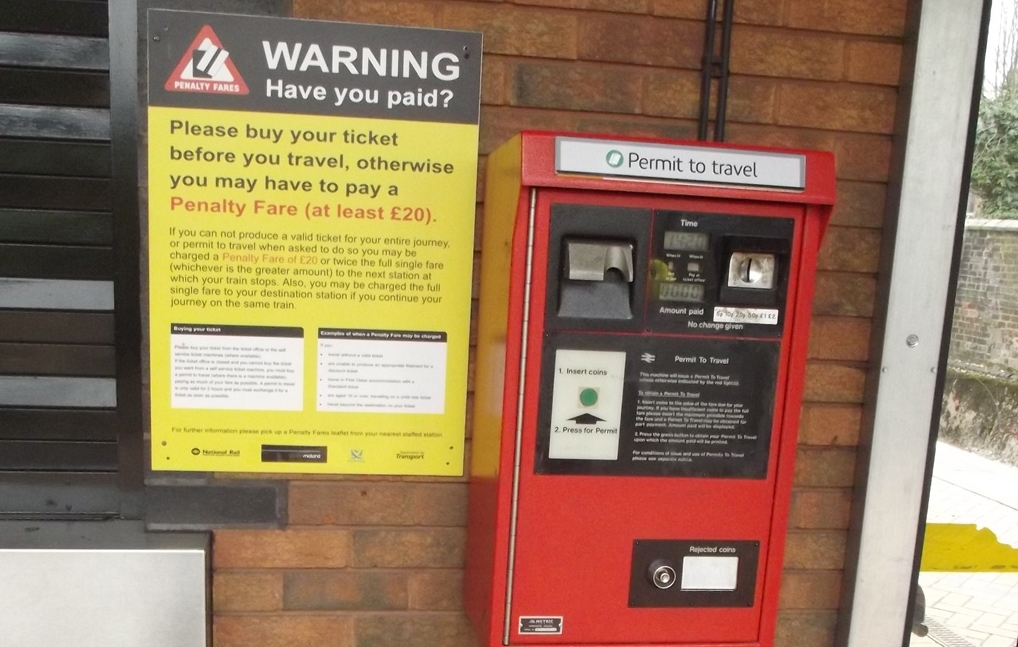Using public transport can be expensive, so it is hardly surprising when people look for ways to lower travel costs. One highly valuable concession for eligible travellers is the Freedom Pass, most commonly associated with London, though variations of it may exist nationwide for older and disabled residents. It allows free or heavily discounted travel on buses, trains, trams, and certain overground services.
However, some individuals risk serious consequences by borrowing someone else's Freedom Pass to avoid paying the correct fare. While it may seem a small, victimless act, it can be treated as a serious offence under multiple UK laws. If you have been caught using someone else's Freedom Pass? This comprehensive article will walk you through potential risks, relevant legislation, and outcomes, helping you understand how best to handle the situation, especially if you face formal investigation or prosecution.
Understanding the Freedom Pass
What Is a Freedom Pass?
The Freedom Pass is an initiative primarily in London, issued by local councils through London Councils, providing free (or significantly discounted) travel for eligible older or disabled people. Similar schemes in other parts of the UK go by different names but share the same basic purpose: to make public transport accessible to those who might otherwise struggle financially or physically.
Why Does Misuse Occur?
Public transport fares can be a significant burden. Some travellers, facing tight budgets, might be tempted to borrow a Freedom Pass from a relative, friend, or flatmate. They may assume this "trick" only hurts a large transport operator. In reality, public transport is funded through public money, meaning everyone shoulders the cost of fare evasion. More importantly, using a Freedom Pass that is not yours is a clear violation of the rules, often viewed by authorities as deception.
Who Issues the Pass, and Why Is Ownership Important?
London Councils distribute Freedom Passes based on verified age or disability criteria and proof of residency. These passes are non-transferable. Only the named holder can lawfully use it. If you are caught using someone else's Freedom Pass, you could face allegations of fraud. The authorities regard this not as a minor infraction but as an abuse of a public resource.
The Legal Framework: Key Legislation
In the UK, multiple statutes and regulations can apply to fare evasion, including the misuse of concessionary passes like the Freedom Pass. Which law is used often depends on the circumstances:
1. Fraud Act 2006
- Section 1 defines "fraud" as dishonest behaviour intended to make a gain or cause loss (or risk of loss).
- Section 2 addresses "fraud by false representation", covering scenarios where someone dishonestly represents themselves as entitled to a benefit they are not eligible for.
- Using someone else's Freedom Pass can be construed as fraudulently obtaining a service (free travel) through false representation.
2. Public Service Vehicles (Conduct of Drivers, Inspectors, Conductors and Passengers) Regulations 1990
- These regulations govern acceptable conduct on buses and similar services. Pass misuse can breach these, leading to possible penalties imposed by transport operators or local authorities.
3. Regulation of Railways Act 1889
- A longstanding yet still relevant law. It makes it an offence to travel, or attempt to travel, without paying the fare, or intending to avoid payment.
- Could apply if the Freedom Pass misuse occurs on trains or railway systems.
4. Transport for London (TfL) Byelaws
- TfL enforces specific byelaws against travelling without a valid ticket. Using someone else's Freedom Pass typically breaches these. Prosecution can follow if inspectors believe the act was intentional.
5. Criminal Attempts Act 1981
- If you are stopped before actually travelling for free, you could still face charges under this Act if there is evidence you intended to commit an offence and took a significant step towards doing so.
Overall, these interlinking laws demonstrate that being caught using someone else's Freedom Pass can be treated seriously, with multiple possible grounds for prosecution.
Penalties and Consequences
The exact penalty or sanction depends on several factors:
- Previous Convictions: If you have been prosecuted for similar offences before, expect harsher treatment.
- Extent of Misuse: Authorities might distinguish between a single, spontaneous misuse and repeated, calculated fare evasion.
- Fare Value: Larger sums or prolonged evasion tend to attract steeper penalties.
- Intent: Clear, deliberate deceit is typically punished more severely than misguided one-off misuse.
- Prosecutor's Discretion: Different transport bodies have different guidelines on whether to issue a penalty or seek formal prosecution.
1. On-the-Spot Penalty Fares
Some operators issue penalty fares immediately. These can be considerable, often around £100, sometimes reduced if paid within a set timeframe. While common for straightforward fare evasion, using a Freedom Pass that belongs to someone else could be treated as a more serious deception, encouraging operators to escalate to prosecution.2. Prosecution
If taken to court and found guilty, you can face:
- Fines: Potentially up to £1,000 or more, depending on the offence and aggravating factors.
- Criminal Record: A formal conviction can affect employment, insurance, and travel visas.
- Court Costs: You may be ordered to pay the prosecution’s legal fees.
- Compensation: In some cases, an amount covering lost fares or administrative costs might be required.
3. Cautions and Warnings
For first-time offenders, or if the misuse is deemed minor, an authority may issue a caution or warning. While less severe than a conviction, a caution can still appear on certain background checks, which can pose problems for jobs requiring a clean record.
4. Civil Recovery
In certain instances, particularly if the misuse is prolonged, operators or councils might pursue civil recovery to claim back an estimated sum of the fares lost. This is more common where there is evidence of repeated misuse over a long period.
5. Impact on the Pass Holder
Lending a Freedom Pass to someone else can also backfire on the actual pass holder. The local council or TfL may revoke their concession if they suspect they willingly facilitated misuse. This can be devastating for individuals who genuinely rely on free travel due to age or disability.
Defence Strategies and Mitigating Factors
If you are caught using someone else's Freedom Pass, it is vital to consider what legal or factual arguments might reduce liability or sentence. However, every statement you make must be honest, false claims worsen legal trouble.
1. Lack of Intent
You might argue you never intended to commit fraud. Perhaps you misunderstood the rules, believing that under certain circumstances (like an emergency) the pass could be shared. However, disclaimers around Freedom Passes are generally explicit, so a pure lack-of-intent argument can be hard to sustain if you used it knowingly.
2. Mistake or Accident
Very occasionally, someone truly picks up the wrong pass by mistake and only realises it is someone else’s at the point of being challenged. If you can provide consistent evidence to show it was an accidental swap, this might mitigate or, in rare cases, form part of a defence.
3. Emergencies
Some defendants claim they used a Freedom Pass in urgent circumstances (e.g., immediate medical need). Such situations might not constitute a complete defence but could influence authorities to show leniency.
4. Genuine Belief of Eligibility
If you believed, through miscommunication, that you were entitled to the pass, you may have an argument, though it is quite specific. For example, if the pass physically showed your details but was somehow misissued to the actual owner. Such administrative errors are uncommon but do occur.
Ultimately, a solicitor experienced in fare evasion cases can advise whether any legal or factual arguments apply to your case. Even if no full defence exists, mitigating factors could reduce penalties.
The Investigation and Prosecution Process
1. Detection
You can be discovered using someone else’s Freedom Pass by:
- Ticket Inspectors: Conducting random inspections on buses, trains, or station barriers.
- Smart Barriers: Automated systems that detect anomalies, like repeated usage of a pass at odd times.
- Targeted Operations: TfL and local councils do run periodic operations targeting concession misuse.
2. Confiscation and Reporting
Once a staff member suspects misuse, they will typically confiscate the pass immediately. The incident is documented and forwarded to the transport operator's investigation unit or relevant authority.
3. Evidence Collection
Evidence might include:
- CCTV Footage
- Inspector Statements
- Journey History (to see patterns or multiple suspicious uses)
- Your Own Admissions
4. Invitation to Interview or Court Summons
Depending on severity, you could be invited to a voluntary interview (often under caution) or simply receive a court summons. If you are summoned, the matter is likely serious enough for the authority to consider formal prosecution.
5. Decision to Prosecute
The prosecuting body, be it TfL, a local council, or the Crown Prosecution Service, evaluates whether there is sufficient evidence and if it is in the public interest to take the case to court.
6. Court Hearing
If the case proceeds, you will appear in the Magistrates' Court (or Crown Court in unusual, more serious instances). A guilty verdict can result in fines, a criminal record, or worse, depending on the aggravating factors.
Impact on Personal and Professional Life
A conviction under the Fraud Act 2006, TfL byelaws, or related legislation can have broader consequences:
- Criminal Record: Must often be disclosed to employers, affecting job applications and certain volunteering roles.
- Employment Prospects: Fraud convictions are viewed particularly negatively by many industries.
- Higher Education: Universities and professional bodies sometimes reject or closely scrutinise applicants with convictions.
- Travel: Countries like the USA or Australia may deny or delay visas for applicants with fraud convictions.
- Insurance and Finance: Criminal records can raise insurance premiums and complicate financial applications.
Even a caution could appear on certain background checks, so it is crucial to treat any allegation of Freedom Pass misuse seriously.
Prevention and Tips for Legitimate Freedom Pass Holders
If you are an authentic Freedom Pass holder, safeguard it vigilantly:
- Keep It Secure: Do not store it loosely where others might pick it up.
- Never Share: Even lending it briefly can lead to it being revoked.
- Report Loss or Theft: Contact your council or the pass issuer immediately to prevent fraudulent use.
- Educate Family and Friends: Emphasise that your concession is for you alone. Lending it out can have legal repercussions for both you and the borrower.
How a Solicitor Can Help
If you have been caught using someone else's Freedom Pass? a qualified solicitor is invaluable:
- Case Evaluation: They will assess the evidence, advise on possible defences, and identify any procedural errors that might help your case.
- Negotiation: Solicitors may negotiate a lesser penalty, such as an out-of-court settlement, to avoid a criminal record.
- Representation in Interviews: If invited to an interview under caution, legal advice can prevent self-incrimination.
- Court Advocacy: Should prosecution proceed, a solicitor advocates on your behalf, challenging the prosecution's case and presenting mitigating factors.
- Post-Conviction Advice: If convicted, they can guide you through appealing or managing disclosure obligations so you understand the effect on your future.
Conclusion
Being caught using someone else's Freedom Pass may seem trivial at first, but it carries real legal risks. In worst-case scenarios, you could face prosecution for fare evasion or even fraud, risking fines, a criminal record, and long-term impacts on employment, travel, and finances. Enforcement bodies take these infractions seriously, viewing them as a form of deception that undermines a system designed to help older and disabled individuals.
If you find yourself under investigation, do not ignore the matter. Read any letters from transport authorities, respond within deadlines, and seek professional legal advice promptly. A single incident may, in some cases, be resolved with a penalty fare or a warning, but repeated misuse or evidence of deliberate dishonesty can bring heavier sanctions. The best safeguard is always to avoid using a Freedom Pass unless you are its rightful holder, any short-term gain pales compared to the potential repercussions of a criminal charge.
Frequently Asked Questions (FAQs)
1. What happens if I use a Freedom Pass just once?
Even once could lead to confiscation of the pass, on-the-spot penalty fares, or prosecution. Outcomes depend on evidence, the operator's policies, and whether this is viewed as a deliberate act.
2. Can the genuine pass holder be penalised if they were not present?
Yes. If authorities decide the holder knowingly lent out their pass, it could be invalidated or revoked. The holder may also face an investigation for enabling fraud.
3. Do I risk going to prison for Freedom Pass misuse?
Prison sentences for a one-off misuse are extremely rare. However, repeated or large-scale fraud can draw harsher consequences, including potential custodial terms for serious offences.
4. Could I just claim I did not realise it was someone else's pass?
Under strict liability rules, a lack of awareness might not be a full defence, though it could reduce penalties. If prosecuted under fraud legislation, genuine ignorance must be proven. You would still face scrutiny regarding how you came to use another's pass.
5. Will this affect my job prospects?
A criminal conviction, especially one involving dishonesty, can appear on DBS checks, affecting opportunities in teaching, healthcare, finance, and more. Even a caution might have implications for certain roles.
6. What should I do if approached by transport staff?
Stay calm. Provide your name and address if asked. If you are asked to give a formal statement under caution, remember your right to legal advice. You do not have to answer questions on the spot beyond basic identification.
7. Is there a time limit for authorities to prosecute me?
Most summary offences must be charged within six months of the alleged offence. That said, ignoring the situation is unwise; once you are on record, an investigation can proceed quickly.
8. I genuinely need free travel but do not qualify yet. Is there any alternative?
Some areas offer discounted passes or hardship support. Rather than risking misuse, it is best to explore legal concessions, seek help from charities, or look into short-term financial assistance.
9. Could I represent myself in court?
You can, but given the complexities and potential for a criminal record, seeking a solicitor's assistance is highly recommended.
10. How do I check if I qualify for my own Freedom Pass?
Visit your local council's website or London Councils if you live in London. Criteria typically involve age or disability. You will need evidence of eligibility, residency, and identity.



